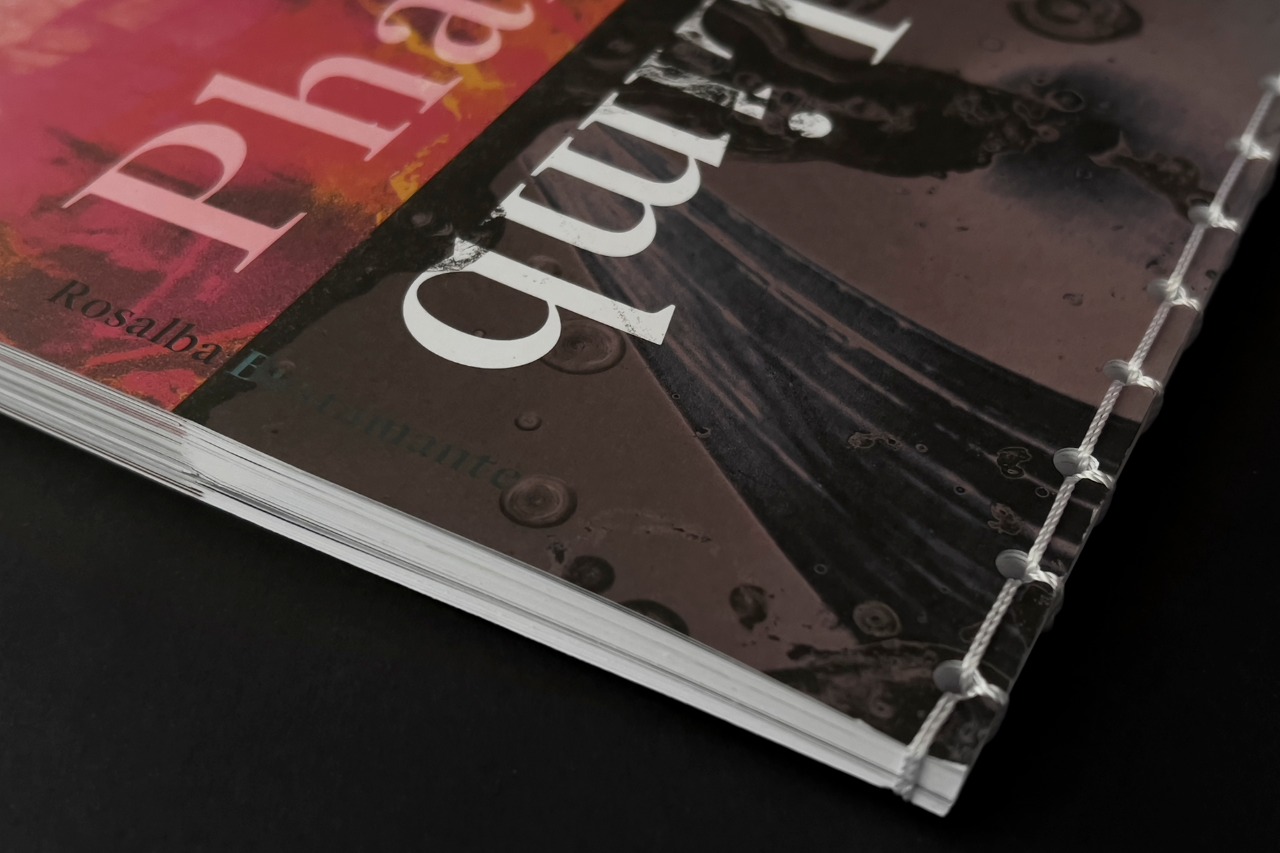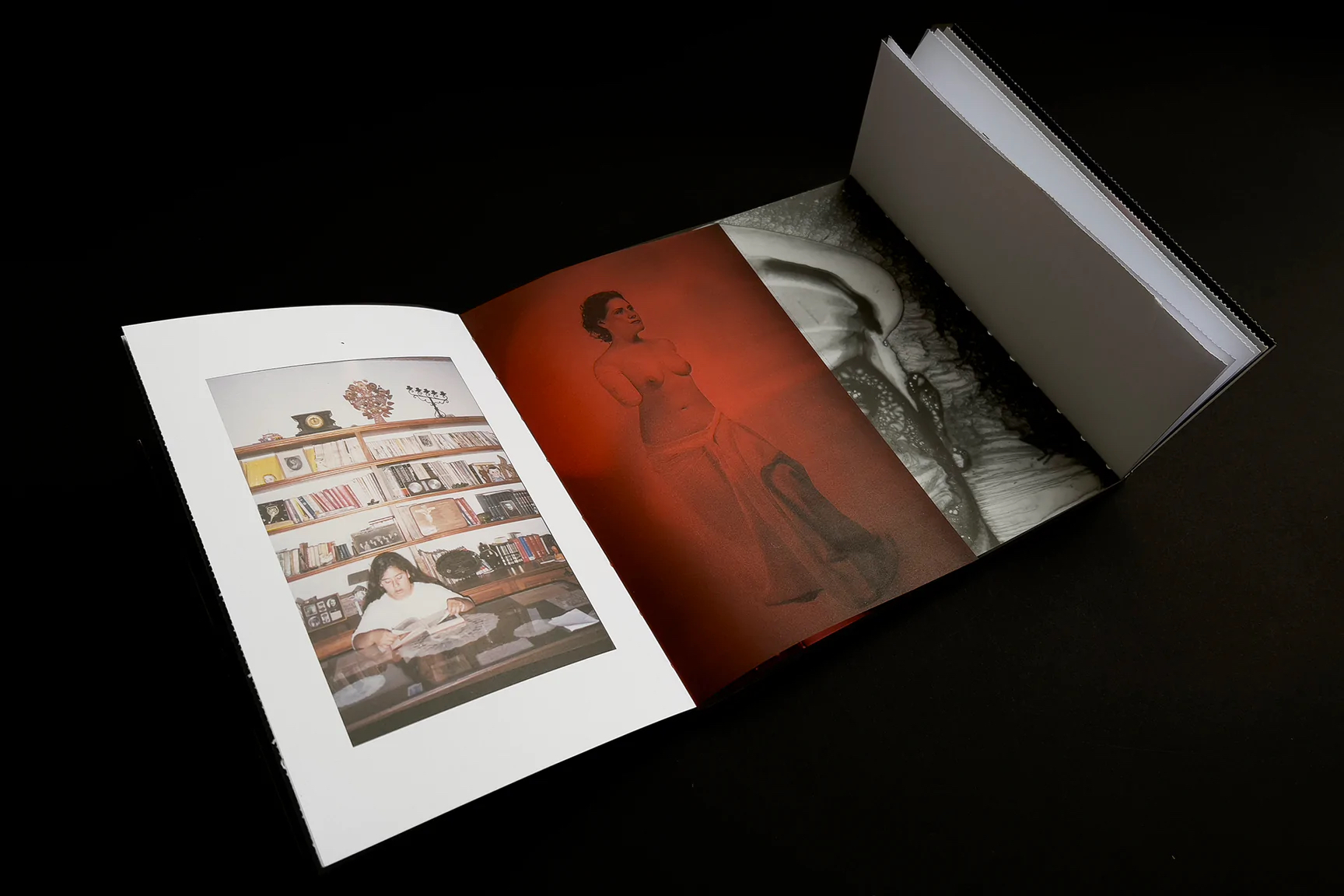2022
PHANTOM PAIN
by ROSALBA BUSTAMANTE
In the course of the construction of thisbook, I was immersed in
a journey through my life as a child and at the same time
through my father’s life, where similarities and radical
ruptures appear. Starting from a repressed childhood that
could at a given moment be the cause of my decisions, such
as having chosen such a cruel medical speciality as Traumatology, where I was almost always in contact with blood
and radical procedures such as amputations.
Anecdotes emerged, both from my childhood and from my practice
as a medical specialist, which led me to search for archive
images. In addition, throughout the photobook are interwoven solarigraphs, an important part of a stage of my work,
where for eighteen months I placed 32 pinhole cameras on
the roofs of houses in the city of Oaxaca, which recorded
both the path of the sun and the great earthquake of 2017
that destroyed a large part of the state. These abstract images of intense colours reflect a profoundly difficult stage
of my life, after leaving medicine, where I plunged into the
tunnels of a strong depression and anxiety.
In the story I draw an analogy between the phantom limb syn-
drome in which a patient, after having been amputated,
continues to feel the now non-existent limb with the linger-
ing presence of the father long after he has passed away.
Separation, mutilation, wounds, ruptures, amputations, words that
are the common thread of the photobook, both in the story
and in its physical structure.
In the course of the construction of thisbook, I was immersed in
a journey through my life as a child and at the same time
through my father’s life, where similarities and radical
ruptures appear. Starting from a repressed childhood that
could at a given moment be the cause of my decisions, such
as having chosen such a cruel medical speciality as Traumatology, where I was almost always in contact with blood
and radical procedures such as amputations.
Anecdotes emerged, both from my childhood and from my practice
as a medical specialist, which led me to search for archive
images. In addition, throughout the photobook are interwoven solarigraphs, an important part of a stage of my work,
where for eighteen months I placed 32 pinhole cameras on
the roofs of houses in the city of Oaxaca, which recorded
both the path of the sun and the great earthquake of 2017
that destroyed a large part of the state. These abstract images of intense colours reflect a profoundly difficult stage
of my life, after leaving medicine, where I plunged into the
tunnels of a strong depression and anxiety.
In the story I draw an analogy between the phantom limb syn-
drome in which a patient, after having been amputated,
continues to feel the now non-existent limb with the linger-
ing presence of the father long after he has passed away.
Separation, mutilation, wounds, ruptures, amputations, words that
are the common thread of the photobook, both in the story
and in its physical structure.
Designed by Vera Yijun Zhou
Published by HYDRA



